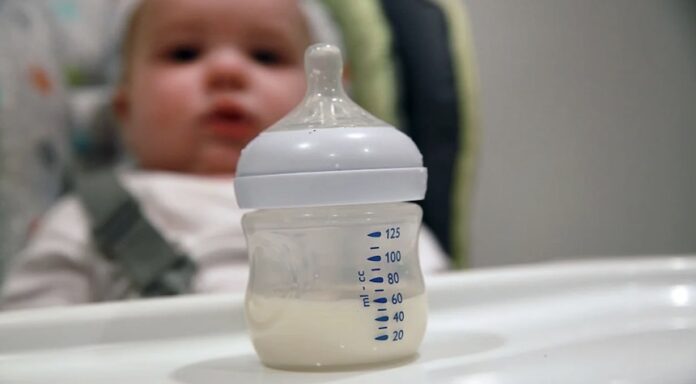Recently, the Biden administration proposed a rule to the United States Department of Agriculture, which could lower the milk allowance for families who participate in the Special Supplemental Nutrition Program For Women, Infants, and Children. The administration also proposed adding more soy-based products to supplement the reduction in the milk allowance.
The USDA reports that WIC currently has more than 6 million participants, including babies and young children.
The Department of Agriculture announced in November 2022 that it would “reduce the milk content of all child, pregnant and postpartum participant food packages” as well as add “soy-based” beverages or other lactose-free beverages, yogurt, cheese, and other dairy alternatives.
According to the USDA, the proposed WIC program updates are science-based revisions from the National Academies of Science, Engineering, and Medicine. They “best meet [participants]’ nutritional needs and foster healthy development and growth.”
In November, Agriculture Secretary Tom Vilsack stated that the USDA is committed to improving maternal and child health by WIC, helping mothers, infants, and young children thrive. These proposed changes will enhance WIC, an already powerful program. They will ensure that WIC provides nutritious foods that are in line with the most recent nutrition science. This will support healthy eating habits and bright futures.
On Wednesday, 28 congressional members, including Elise Stefanik (New York Republican Representative), rebuffed the proposal. They argued that it would “exacerbate the crisis families already face with skyrocketing grocery store prices.”
Representatives of both parties wrote a joint letter to Thomas J. Vilsack from the Department of Agriculture explaining that the proposed reduction in monthly milk allowance was substantial and a source of deep concern.
Children aged 12-24 months are currently allowed 16 quarts per month of milk through the WIC program. The new rule would allow these children to only receive 12 quarts of milk per month.
Children aged 2-4 years old would see a reduction of 16 quarts to fourteen quarts per month, while pregnant or partially breastfeeding mothers would see a reduction from 22 quarts to 16 quarts each month.
The members of congress expressed concern that the reduction of dairy in WIC food packs will have a negative impact on the nutritional intakes of program participants and their health, as it will reduce their access to nutrients at critical life stages for health and development.
The WIC program would be less attractive to families with children, and therefore likely to have fewer participants.
The congressional representatives stated that they strongly urge you not to reduce the milk available to WIC families, and instead to maintain the current WIC dairy allocations in the final rule.










